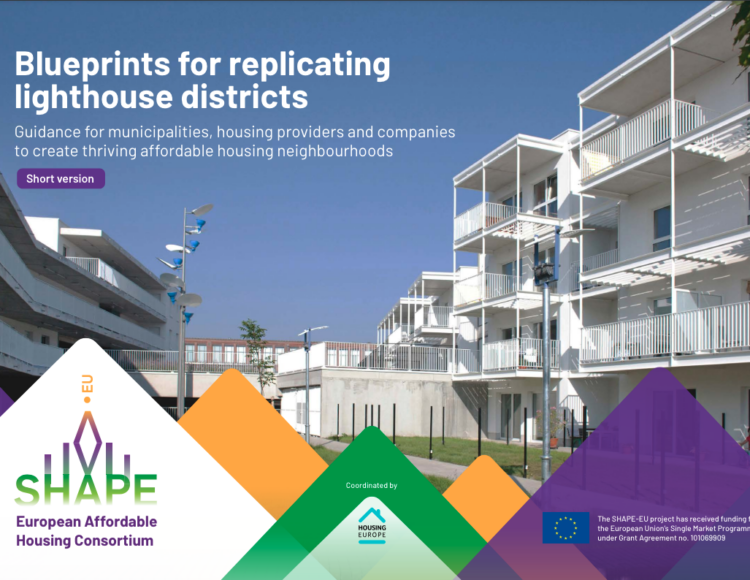In 2022, Housing Europe and 9 committed partners were tasked by the European Commission with the take-off of the European Affordable Housing Initiative. We accepted the challenge and created a rich and diverse capacity-building programme that provided a set of tools on how to renovate homes for people and have a strong social impact on communities.
The European Commission’s Renovation Wave strategy for Europe aims at least doubling renovation rates in the EU by breaking down long-standing barriers to energy and resource-efficient renovation as well as improving reuse and recycling. In numbers, this could and should result in 35 million renovated buildings for people and neighbourhoods by 2030.
The acceleration of renovation, however, should not come at the expense of social fairness and affordability. The transformation needs to be about providing decent affordable homes in places where people can reach their full potential; about resilient communities, turning former no-go areas into places people are proud to live in; and an opportunity to change from linear to a circular system thinking approach.
Within this remit, escalating from a single building to the scale of a neighbourhood or district is an approach that would not only benefit from economies of scale and attract larger investments, but also be a suitable scale to involve residents in co-managing the process of building cohesive, thriving communities. A partnership of public, cooperative, social housing providers, municipalities and companies in the construction and social economy sectors, as well as experts in the financial and social innovation field from the European Affordable Housing Consortium have come together to create a set of blueprints to help local promoters across Europe create thriving communities in existing social and affordable housing districts.
3 Blueprints with tried and tested approaches are ready to answer your questions on how to plan and implement innovative renovations that leave no one behind.
They can help public, cooperative, social housing providers, SMEs, and cities to answer their questions on the following topics.
- Project implementation and financial feasibility
- Technology and digital applications
- Social inclusiveness and liveability
You can now download and read them in six languages, English, French, Dutch, Spanish, Italian, and Estonian.
The guidelines are based on the collection and organisation of information that is already available but remains scattered or simply not accessible. The blueprints aim to encourage these actors to go beyond the traditional way of approaching decarbonisation towards integrating people-centred approaches with innovative building materials, services, processes, or new business models.
Who can use them as a source of inspiration?
• Housing providers (social, public, cooperative, and community-led providers of affordable housing).
• Municipalities.
• Companies in the construction ecosystem, including renewables, digital, electronics and other technologies for the housing sector.
• Companies in the proximity, social economy, and civil security ecosystem: social housing services and other social services that are active in housing districts, for example, incubation, and entrepreneurship support.
• Companies in the health, culture, and creative culture industries as these might be crucial for the co-creative and aesthetic aspects of renovation.
It is recommended that the blueprints are used in combination with other references and tools to support the decision-making process, including for instance digital tools to help elaborate different scenarios of renovations and choose the most appropriate one.
The European Affordable Housing Consortium, SHAPE-EU project has received funding from the European Union’s Single Market Programme under Grant Agreement no. 101069909
